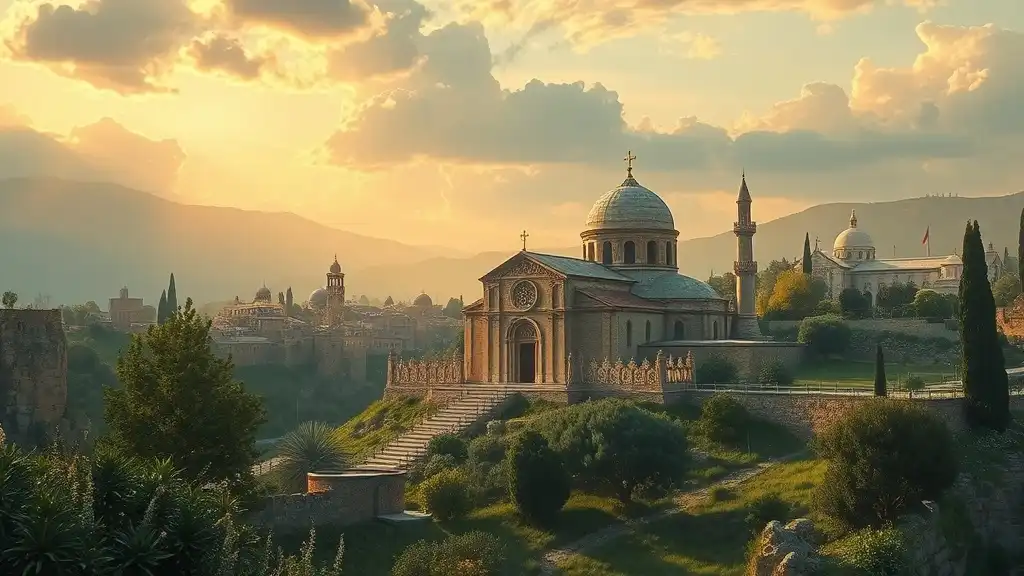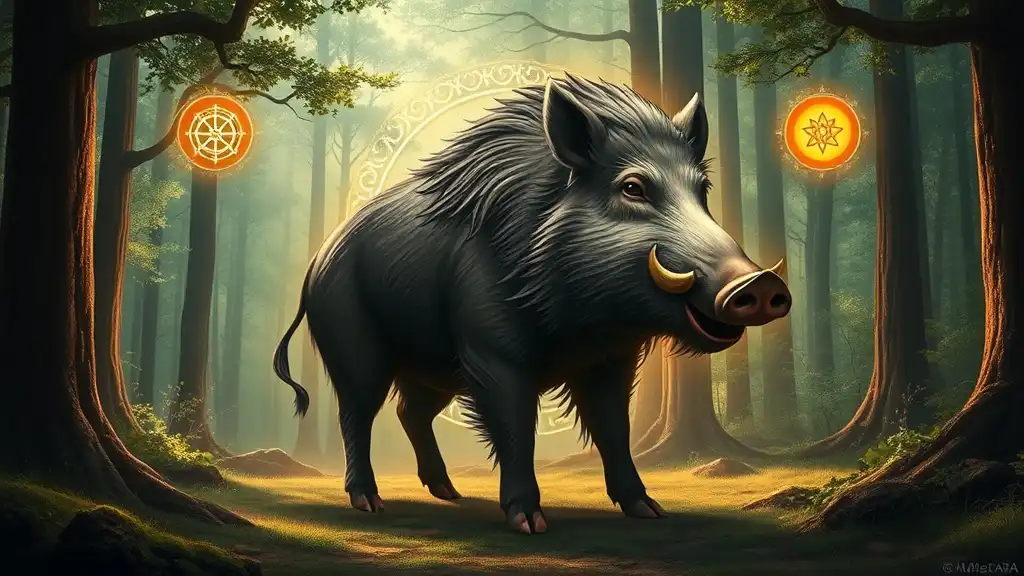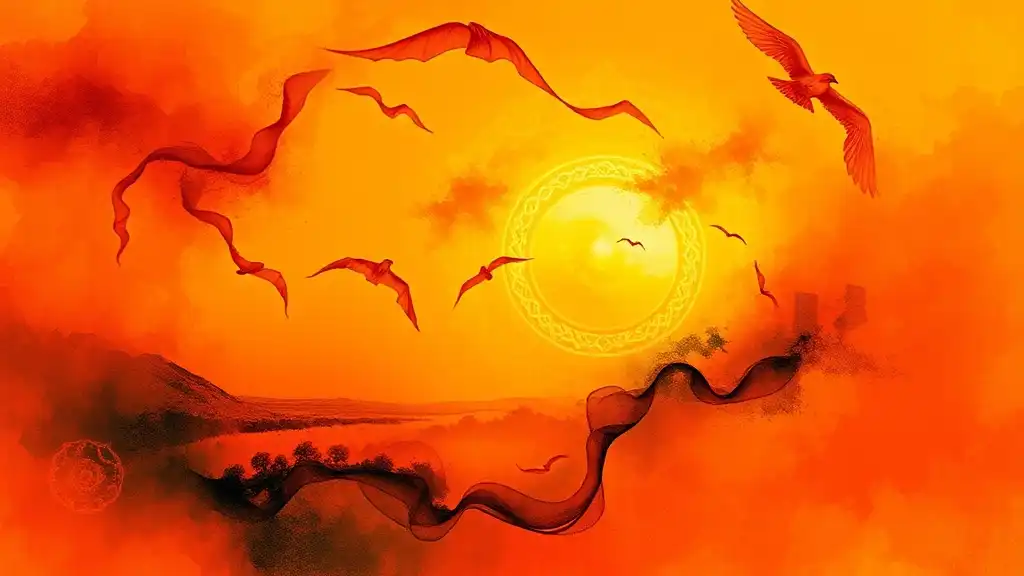Zoar is often perceived as just a geographical location mentioned in biblical texts, but its spiritual significance runs deep, resonating with themes of transformation, refuge, and divine mercy. Understanding the spiritual meaning of Zoar can illuminate our personal journeys, offering profound insights into growth and protection in times of change.
Historical Context of Zoar
Zoar is rooted in ancient traditions, primarily found in the Hebrew scriptures. It is notable for its mention in the story of Lot, who fled the destruction of Sodom and Gomorrah. The name Zoar itself means "small" or "insignificant," yet it stands as a pivotal refuge amidst chaos. This historical backdrop adds layers of meaning, contrasting the concepts of safety and vulnerability, illustrating how even the humblest of places can serve as sanctuaries.
Origins and Cultural Significance
In understanding Zoar's significance, it is essential to dive into its origins. The town was characterized as a safe haven, a place where the divine mercy of God was evident. This duality of being both a literal place and a metaphor for spiritual refuge creates a rich tapestry of interpretations throughout various cultures.
Zoar in Religious Texts
Religious texts often highlight Zoar’s role in overcoming adversity. It teaches us that refuge can offer protection, regardless of size or prestige. Its mention across different scriptures showcases its importance as a symbol of hope and survival.

Symbolism of Zoar
The symbolism of Zoar transcends its physical existence, addressing profound themes related to spiritual safety and the concept of transformation.
Spiritual Hierarchy and Protection
Zoar embodies the notion of spiritual sanctuary. In times of personal crises or moral dilemmas, many seek their own Zoar—a space, emotional or physical, that provides comfort and safety. The narrative surrounding Lot's escape from Sodom emphasizes the power of divine protection. Drawing from this, we can reflect on our own lives, considering the ways we seek shelter from life's storms, both emotionally and spiritually.
Transition and Transformation
Zoar symbolizes transition and transformation, emphasizing the importance of navigating change. Just as Lot fled to Zoar as a means to escape destruction, we too must embrace the shifts in our lives. Courageously leaving the familiar, we often find ourselves in new, uncharted territories. In these moments, Zoar serves as a reminder of the potential for rebirth and renewal, guiding us through our spiritual journeys.

Zoar in Different Spiritual Traditions
As we explore spiritual traditions, the interpretation of Zoar provides varied yet complementary insights.
Judaism
In Jewish texts, Zoar is more than a sanctuary; it becomes a metaphor for God’s mercy. The Kabbalistic teachings delve into the idea of divine protection offered to the righteous, reinforcing that those who seek refuge in their spiritual practice can find solace amid turmoil. Here, Zoar teaches that no matter how dire the situations may appear, there exists a pathway to healing and understanding.
Christianity
Christian scripture offers additional layers to the meaning of Zoar. The New Testament references to cities of refuge echo the sentiments found in its Old Testament origins. Theological interpretations often view Zoar as a precursor to salvation, embodying the idea that in times of trial, one can find sanctuary through faith and devotion. This religious lens encourages believers to commit to their spiritual growth, resting assured that divine grace will guide them through adversities.
Islamic Perspective
In Islamic teachings, Zoar signifies the concept of mercy. The story emphasizes God's compassion towards those who seek refuge from their circumstances. The dual meaning of Zoar enhances the understanding of divine mercy, reminding us that in seeking forgiveness and safety, we align ourselves with divine wisdom and tenderness.

The Spiritual Lessons of Zoar
The narrative of Zoar offers essential spiritual lessons that resonate deeply within us.
Embracing Change
The essence of Zoar teaches us about the importance of transition. Life is inherently dynamic, and resisting change often leads to suffering. Just as Lot had to abandon Sodom for a better future, we need to learn to let go of what no longer serves us, embracing new opportunities for growth. This act of surrender is crucial for personal evolution and spiritual awakening.
Finding Sanctuary
Zoar symbolizes the essence of spiritual refuge. In our daily lives, seeking sanctuary—whether through meditation, prayer, or connecting with nature—is vital for our well-being. Creating spaces where we can retreat from the chaos empowers us to recharge and reconnect with our inner selves. Establishing such sanctuaries can provide the much-needed clarity and peace that foster our growth.

Practical Applications of Zoar's Spiritual Meaning
Incorporating Zoar’s spiritual lessons into our lives can be transformative.
Meditative Practices
Engaging in visualization techniques can be a powerful way to connect with the essence of Zoar. Imagine yourself in a serene and safe space, allowing the feeling of protection to envelop you. This visualization can serve as a potent tool during moments of anxiety or doubt, reminding you of your inner strength.
Affirmations and Mantras
Crafting personal affirmations inspired by Zoar can reinforce your commitment to finding sanctuary and embracing change. Examples might include: “I am safe in my journey,” or “Change brings me closer to my true self.” Integrating daily rituals centered around these affirmations can cultivate a positive mindset and deepen your spiritual practice.

Conclusion
Understanding the spiritual significance of Zoar illuminates the path toward inner peace and transformation. It serves as a reminder that amid chaos, we can find refuge and embrace the changes that life presents. By exploring the rich layers of meaning associated with Zoar, we empower ourselves to navigate our spiritual journeys with grace and courage, ultimately seeking our own personal sanctuaries.



















